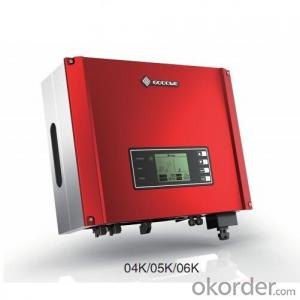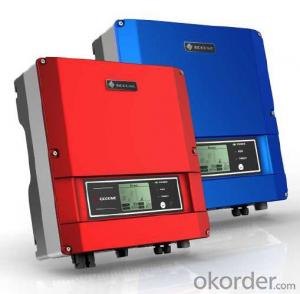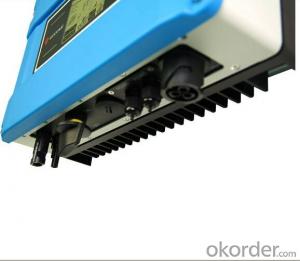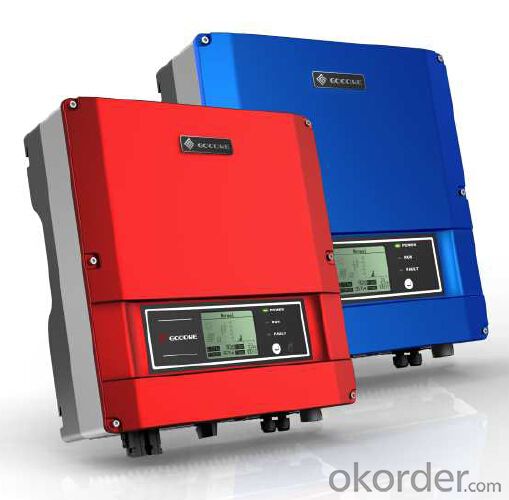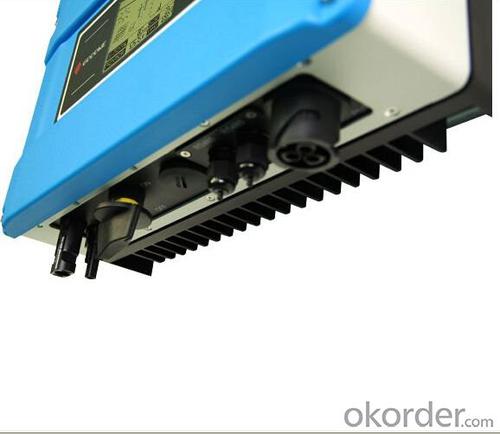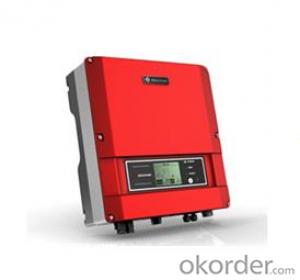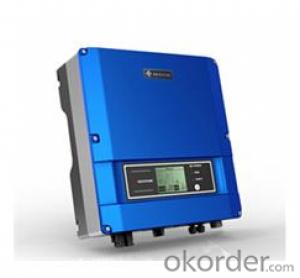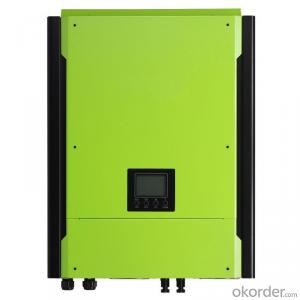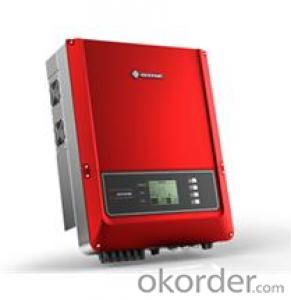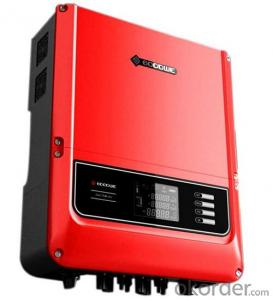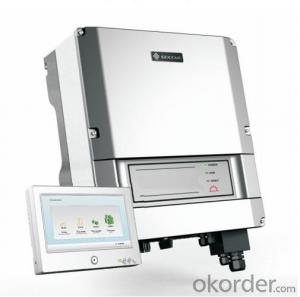Huawei Solar Inverter GW4000-DT On Grid
OKorder Service Pledge
Quality Product, Order Online Tracking, Timely Delivery
OKorder Financial Service
Credit Rating, Credit Services, Credit Purchasing
You Might Also Like
GW4000-DT inverters are typically designed for home solar systems,
4kW/5kW/6kW.By adopting cutting-edge technology of photovoltaic field,
it provides three making home system connection well balanced ,safer and more convenient.
The integrated allow two-array inputs from different roof orientations.
And the combination of both RS485 communication makes the system well interactive and extremely easy to be monitored.
Datasheet
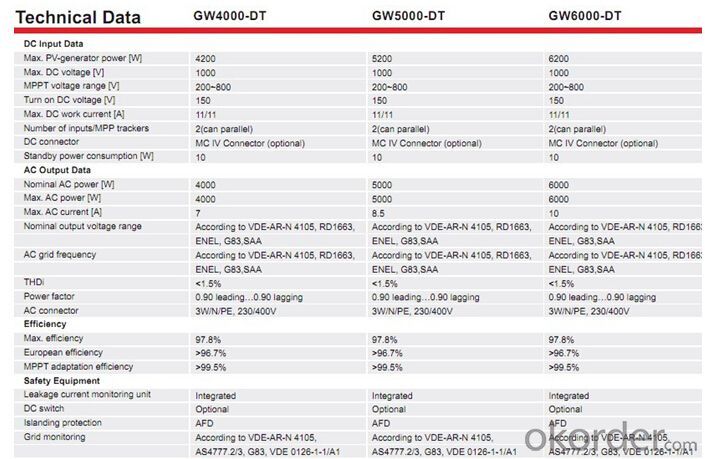
- Q: Can a solar inverter be used in grid-tied systems?
- Yes, a solar inverter can be used in grid-tied systems. In fact, it is a crucial component of such systems as it converts the DC power generated by solar panels into AC power that can be fed into the electrical grid.
- Q: Can a solar inverter be used with different AC voltage systems?
- No, a solar inverter cannot be used with different AC voltage systems. It is designed to work specifically with a particular AC voltage system and attempting to use it with a different system can cause damage to the inverter and the connected appliances. It is important to ensure compatibility between the inverter and the AC voltage system before installation.
- Q: Can a solar inverter be used with different types of grounding configurations?
- Yes, a solar inverter can be used with different types of grounding configurations. However, it is important to ensure that the grounding configuration of the inverter is compatible with the specific electrical system it is being connected to. It is recommended to consult the manufacturer's guidelines and local electrical codes to determine the appropriate grounding configuration for safe and efficient operation.
- Q: Can a solar inverter be used with batteries for energy storage?
- Yes, a solar inverter can be used with batteries for energy storage. The solar inverter converts the DC (direct current) electricity generated by the solar panels into AC (alternating current) electricity that can be used to power household appliances. When connected to batteries, the excess solar energy generated during the day can be stored in the batteries for later use, such as during nighttime or when the solar panels are not producing enough electricity. This allows for a more efficient and reliable use of solar energy.
- Q: Can a solar inverter be used in a multi-string configuration?
- Yes, a solar inverter can be used in a multi-string configuration. In fact, many solar installations utilize multiple strings of solar panels connected to a single inverter. This allows for increased efficiency, flexibility, and the ability to harvest more energy from the sun.
- Q: Can a solar inverter be used with a solar-powered remote monitoring system?
- Yes, a solar inverter can be used with a solar-powered remote monitoring system. The solar inverter converts the DC (direct current) electricity generated by the solar panels into AC (alternating current) electricity that can be used to power the remote monitoring system. This allows the system to be powered by solar energy and provides the necessary electricity for monitoring and data transmission.
- Q: What is the role of a power quality analyzer in a solar inverter?
- A power quality analyzer in a solar inverter is responsible for monitoring and analyzing various electrical parameters such as voltage, current, frequency, harmonics, and power factor. It ensures that the solar inverter is operating efficiently and delivering high-quality power to the grid. By detecting and diagnosing any power quality issues, the analyzer helps in identifying potential problems, optimizing energy production, and maintaining the overall performance and reliability of the solar inverter system.
- Q: How does a solar inverter interact with the electrical grid?
- A solar inverter interacts with the electrical grid by converting the direct current (DC) electricity generated by solar panels into alternating current (AC) electricity that is compatible with the grid. It synchronizes the generated electricity with the grid's voltage and frequency, allowing excess power to be fed back into the grid for others to use, and drawing additional power from the grid when needed. This interaction ensures efficient utilization of solar energy and seamless integration of solar power into the existing electrical grid infrastructure.
- Q: What are the common issues and troubleshooting steps for a solar inverter?
- Some common issues with solar inverters include no power output, low power output, display or communication errors, and overheating. Troubleshooting steps for these issues may involve checking the input voltage and connections, inspecting the DC and AC cables for damage, resetting the inverter, updating firmware or software, ensuring proper ventilation and cooling, and contacting technical support if necessary.
- Q: Can a solar inverter be used in a floating solar system?
- Yes, a solar inverter can be used in a floating solar system. The purpose of a solar inverter is to convert the direct current (DC) generated by solar panels into alternating current (AC) that can be used to power electrical devices. In a floating solar system, the solar panels are mounted on floating platforms or structures on water bodies. The solar inverter is still required to convert the DC power generated by the panels into AC power that can be used by the electrical grid or connected devices.
Send your message to us
Huawei Solar Inverter GW4000-DT On Grid
OKorder Service Pledge
Quality Product, Order Online Tracking, Timely Delivery
OKorder Financial Service
Credit Rating, Credit Services, Credit Purchasing
Similar products
Hot products
Hot Searches
Related keywords
